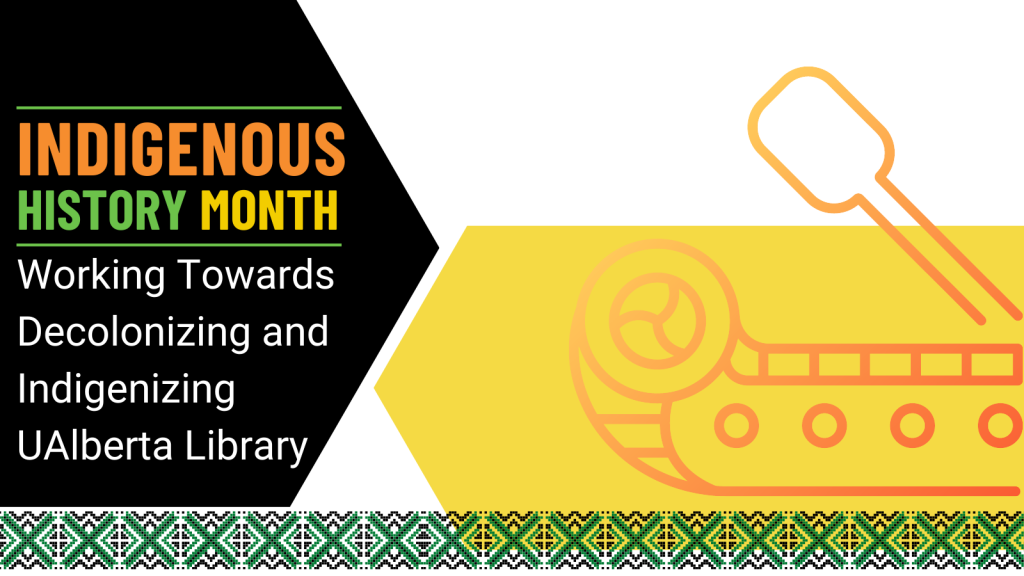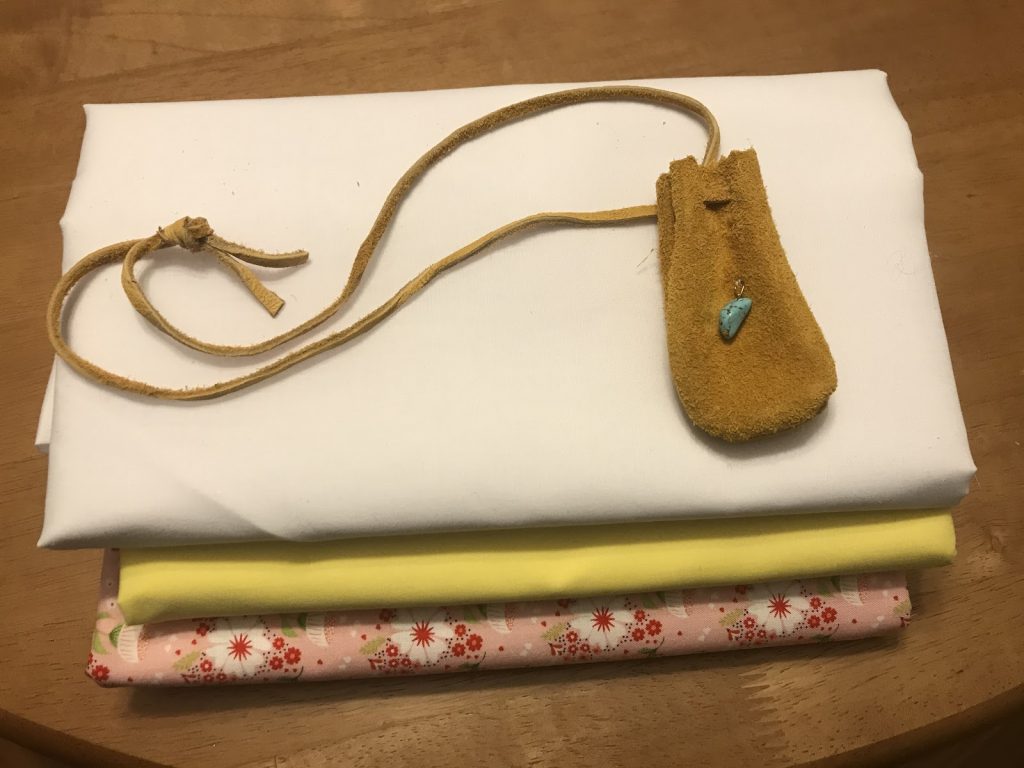This post was written by Debbie Feisst and Anne Carr-Wiggin, Co Leads, of University of Alberta Library’s Indigenous Initiatives Team

As part of the University of Alberta Library’s Vision, we have committed to the priority of Decolonization and Indigenization. But what does this mean? We are working to dismantle barriers to our collections, spaces and services through collaboration and working with our community. Some other key components are considering our relationship with the land, consideration of library practices and recognition of harm. In 2020, the Library’s Indigenous Initiatives Working Group’s final report provided recommendations that spanned five themes:
- Grow & Nurture Relationships
- Decolonize Library Spaces
- Enable Learning
- Build and Digitize Collections
- Decolonize Library Practices
We also created a more formalized Indigenous Initiatives Team with members from a variety of Library units. In early 2021, the Team began work in a good way with Elder Francis Whiskeyjack, figuring out ways to do protocol during a pandemic over Zoom!

by Anne Carr-Wiggin
Our initial goal was to gather our group and grow relationships amongst the Indigenous and non-Indigenous members of the Team. We spent time placing ourselves – our place on this land and the land we or our ancestors are from – and have since invited and learned from visitors and spent time developing and sharing our knowledge.
The Current projects of the Team and the Library include:
Engagement
ISEG: Indigenous Student Engagement Group
This proposed group will act as a means for First Nations, Métis and Inuit students to provide feedback and input on Library services, policies and programs. The group will identify issues, interests, opinions and suggestions. We are hopeful for a Fall 2022 start.
We are also starting to meet with staff from other NEOS libraries who are doing work in Indigenous Initiatives.
Spaces
The Library is working towards spaces that would be open for all, but available for Indigenous focused events and ceremonies, and consultations with Indigenous students began in late 2021.
We were awarded a grant from Situated Knowledges: Indigenous Peoples and Place(SKIPP) that will allow us to enhance physical spaces and to enable programming. We want to foster an increased understanding of Indigenous perspectives and approaches to learning in support of teaching, learning and research activities at the university.
Collections
Decolonizing Description
Team members are active leaders in this international movement to address and correct the problem of inappropriate and inaccurate words used to describe Indigenous peoples and topics.
Additionally, team members are assisting in the review of AV materials in the Circumpolar Collection selected for digitization, as well as materials to include in the Indigenous Healing Collection.
Learning
Recognition of the National Day for Truth and Reconciliation
Planning is underway for programming to honour the lost children and survivors of residential schools, their families and communities.
Working with First Peoples House and the Transition Year Program
Team members are continuing our relationship with campus supports for Indigenous students.
The team is eager to hear from students who would like to be part of the Indigenous student engagement group, or from anyone who has ideas or input to guide the library on the path to decolonization and appropriate Indigenization! Please get in touch with us. Email debbie.feisst@ualberta.ca or anne.carr-wiggin@ualberta.ca.
